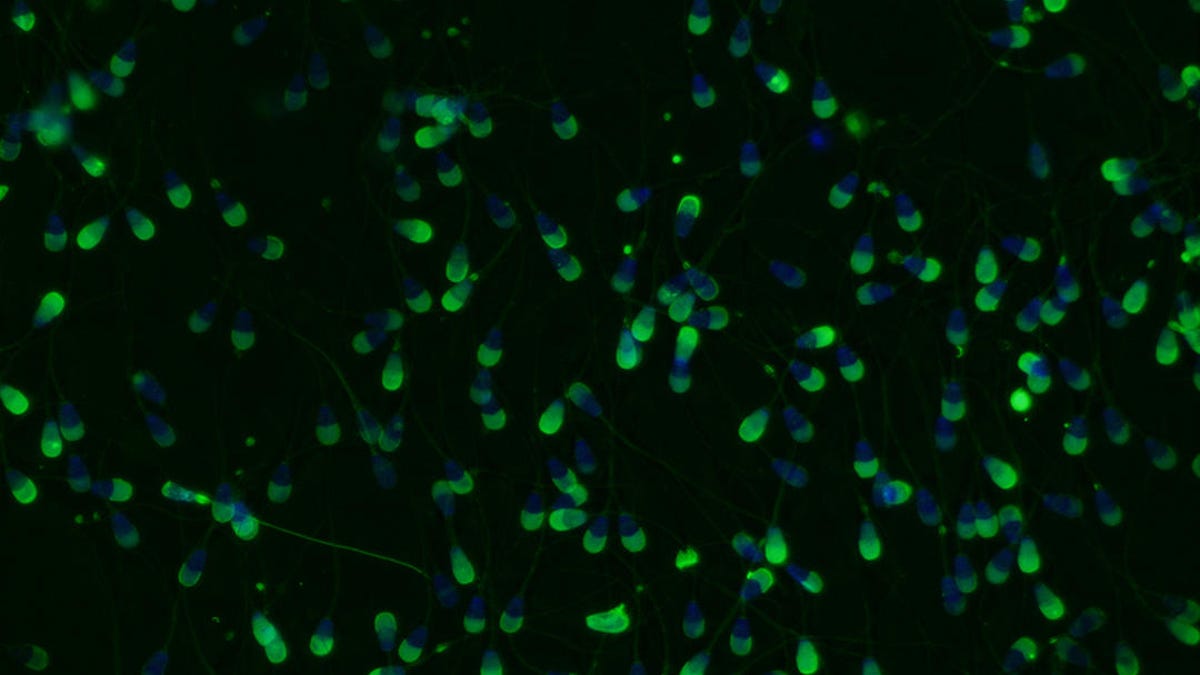A sperm bank in space is a real possibility, new science says
It's not unreasonable to think a future generation of space men (and women) could come from frozen semen.

A sample of stained bull sperm was sent to the International Space Station as part of another experiment.
Sex in space would likely be a little tricky, but new science finds sperm seem to function just fine without Earth's gravity, perhaps eliminating the need for getting conjugal in the cosmos.
A preliminary study looked at samples of the swimmers exposed to microgravity and found them to be no different than their ground-bound counterparts. That discovery hints at the future option "of safely transporting male gametes to space and considering the possibility of creating a human sperm bank outside Earth."
The experiments were done using frozen rather than fresh sperm samples, which is an important distinction, according to Montserrat Boada of Dexeus Women's Health in Barcelona. Boada presented the findings Sunday at a meeting of the European Society of Human Reproduction and Embryology.
"Some studies suggest a significant decrease in the motility of human fresh sperm samples," Boada said in a release. "But nothing has been reported on the possible effects of gravitational differences on frozen human gametes, in which state they would be transported from Earth to space."
It's worth noting that the frozen sperm samples weren't actually sent to space for the experiment, but rather were put on a parabolic plane flight that exposed them to about eight seconds of gravity per maneuver.
Analysis of the flown sperm compared with the control samples showed only the kind of minimal differences that were to be expected among any samples.
Up next, researchers will try to replicate the results and then perform new experiments with longer periods of microgravity exposure.
"It is important to study the effects of long-term human exposure to space in order to face them," Boada said. "It's not unreasonable to start thinking about the possibility of reproduction beyond the Earth."

